
Carolyn Wilke earned her Ph.D. in environmental engineering at Northwestern University, where her research drew on the fields of environmental chemistry, materials science and toxicology. She got her start in science writing by blogging for HELIX, Northwestern’s science magazine and wrote as a AAAS Mass Media Fellow at The Sacramento Bee. Now a freelance science writer. Carolyn worked as a staff writer at Science News Explores and interned at Science News and The Scientist. When not delving into a new scientific discovery, you might find Carolyn behind her sewing machine or trying to amuse her cat.

All Stories by Carolyn Wilke
-
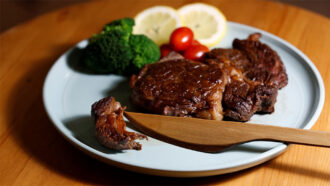 Materials Science
Materials ScienceAnalyze This: Hardened wood can make sharp steak knives
Researchers treated wood to make it hard and dense. Out of it, they carved sharp knives and nails that could substitute for ones made of steel.
-
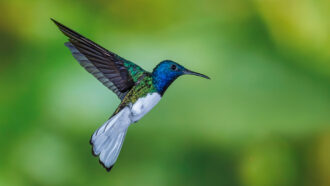 Animals
AnimalsAnalyze This: Some female hummingbirds go undercover
Some female white-necked jacobin hummingbirds boast bright blue colors similar to males. That may help females blend in to avoid attacks.
-
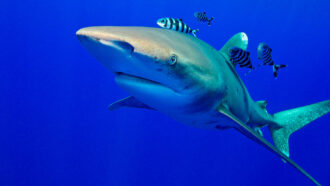 Animals
AnimalsAnalyze This: Sharks aren’t as scary as what you see on TV
In Shark Week shows, scientists found mixed messages about sharks, insufficient research support and little info on conserving endangered animals.
-
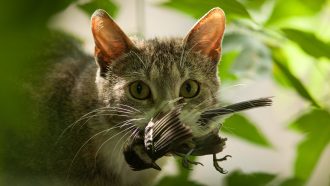 Ecosystems
EcosystemsAnalyze This: Invasive species cost the world billions each year
A new study estimates that invasive species have cost the world more than $1 trillion since 1970. That’s almost certainly an underestimate.
-
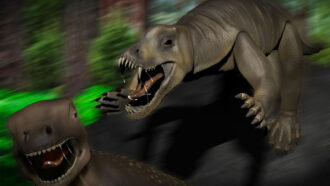 Fossils
FossilsAn ancient hippo-sized reptile may have been a speedy beast
An Anteosaurus was a hefty reptile with a large snout. Its fossil skull hints that it may have moved fast for its time.
-
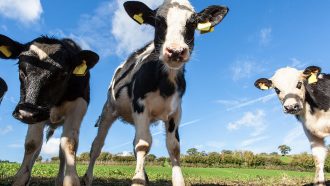 Animals
AnimalsAnalyze This: Cows burp less methane after early-life treatment
Calves that receive the 14-week treatment belch less of the greenhouse gas, possibly due to shifts in their gut microbes.
-
 Animals
AnimalsAnalyze This: Some dogs quickly learn new words
Two dogs picked up new words after hearing them a few times during play, but 20 other pets didn’t fare so well at learning the names of new toys.
-
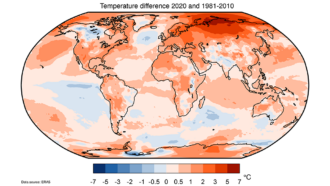 Climate
ClimateAnalyze This: 2020 ties with 2016 for hottest year on record
Last year capped the warmest decade on record. It coincided with a growing increase of warming greenhouse gases in Earth’s atmosphere.
-
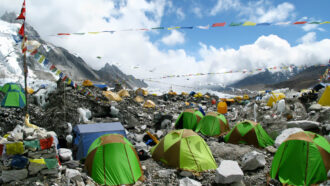 Environment
EnvironmentAnalyze this: Microplastics are showing up in Mount Everest’s snow
Microplastics have made their way to the snow on Earth’s tallest peak. Most of the plastic likely comes from climbers’ equipment and clothes.
-
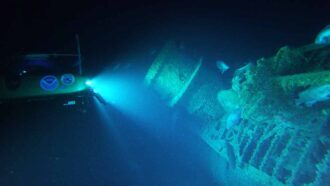 Oceans
OceansAnalyze This: Shipwrecks provide a home for bottom-dwelling fish
Fish have found a habitat in a submarine and freighter that sunk to the seafloor during World War II.
-
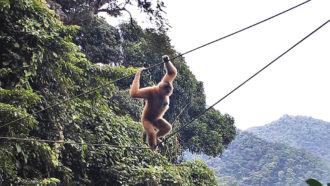 Animals
AnimalsAnalyze This: Ropes restore a gibbon highway through a rainforest
When endangered Hainan gibbons started making risky leaps across an area mowed down by a landslide, researchers provided them a rope bridge.
-
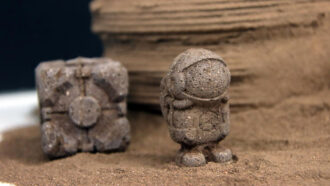 Materials Science
Materials ScienceAnalyze This: Insect shells could help builders on Mars
When mixed with rocky soil, a compound called chitin makes a strong material. It could be pulled from the shells of insects used for food.